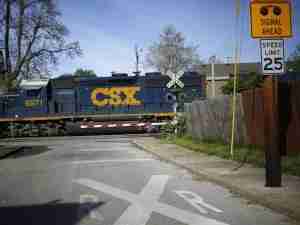Colombia coal railway seen restricted for at least 2 more months
By: Reuters | Apr 23 2015 at 03:02 PM | Intermodal
A ban on the overnight use of Colombia's main coal railway, Fenoco, will likely stay in place for two more months at least, the Mines and Energy Minister said, while miner Drummond said the restriction was limiting its exports.
The railway, which carries about half the coal in the world's fourth biggest coal exporter to ports, has been unable to operate since February for the 6-hour period between 10:30 p.m. and 4:30 a.m., cutting its capacity by one quarter.
Mines and Energy Minister Tomas Gonzalez told reporters that engineering works Fenoco will undertake to enable the line to operate at night again "should take a couple of months," adding he did not know exactly how long, or when the works would start.
Gonzalez spoke to reporters at a congress of Colombia's mining industry association, ACM.
Colombia's constitutional court imposed the overnight ban after complaints of noise and dust by residents in the community of Bosconia in Cesar province, through which the railway passes.
Jose Miguel Linares, president of U.S.-based miner Drummond, Colombia's second-biggest coal miner and one of three mining companies which owns the railway, told reporters Fenoco would install gabions to reduce noise when trains cross Bosconia.
This would involve placing rocks held in place by wire nets along the sides of the railway for the 2.5 km (1.9 mile) stretch of track crossing the town, Linares said. He did not have an estimate of how long the works would take, but said Fenoco staff met with Bosconia residents on Wednesday to explain the plan.
Gonzalez said though the overnight restriction was imposed by the constitutional court, the regional tribunal in Cesar province where residents made the complaint, will have the final say on whether the works cut noise levels satisfactorily.
Drummond has been rescheduling the arrival of some ships collecting coal to help freight companies avoid port demurrage charges since the railway restriction has increased the time needed to bring coal to the port, Linares said.
He declined to specify what proportion of shipments were subject to these delays and said he could no longer be sure the company would reach a 30 million tonne production target for 2015. He did not give an alternative figure.
"We're waiting to see what will happen with the (railway) restriction," he said. (Reuters)






